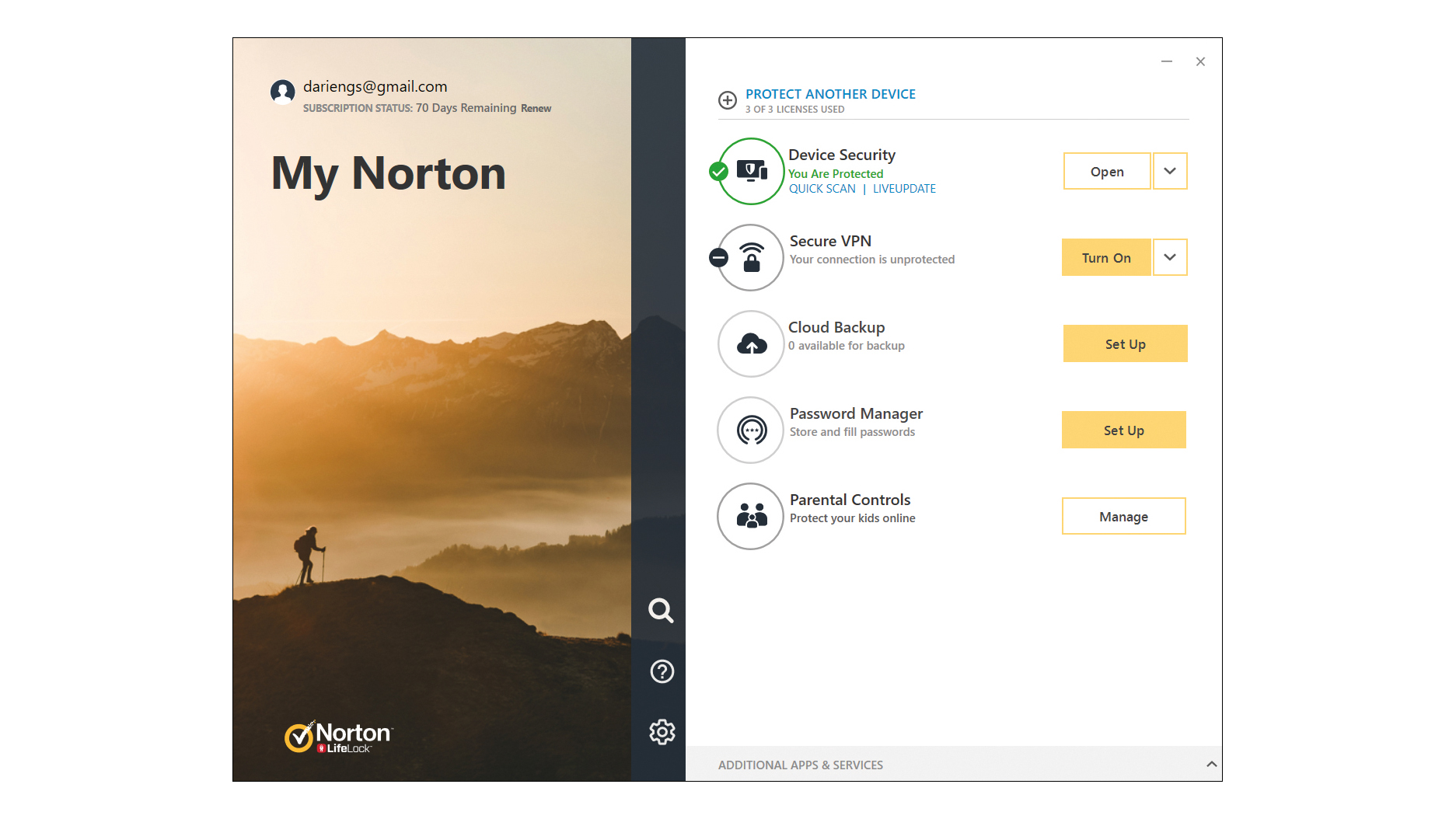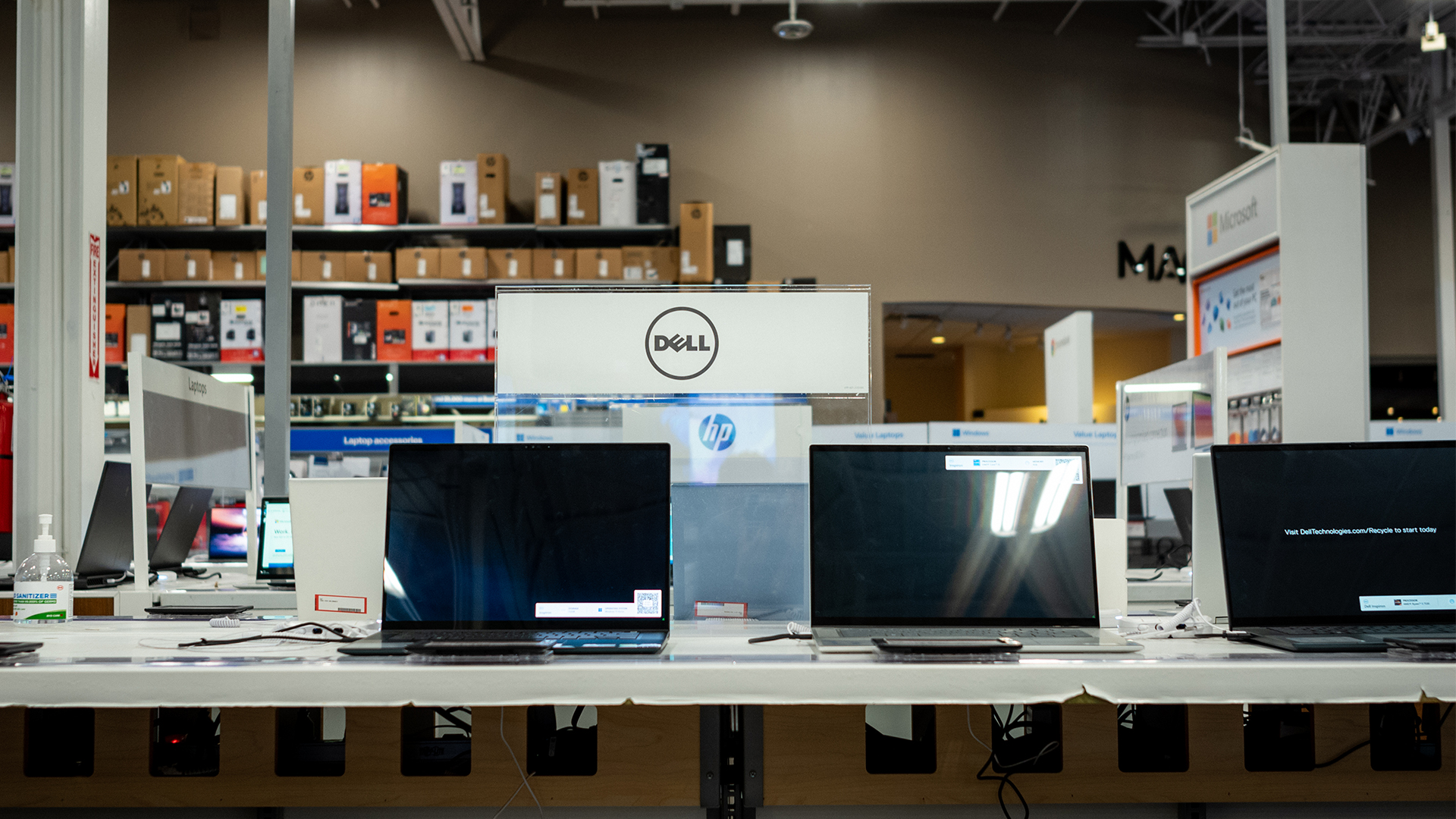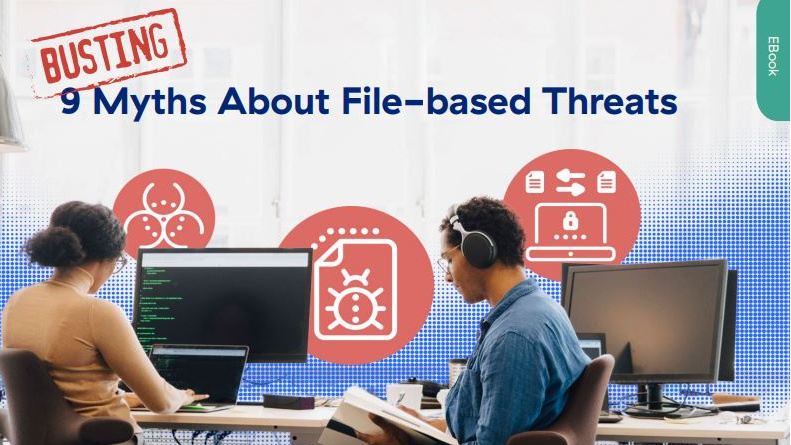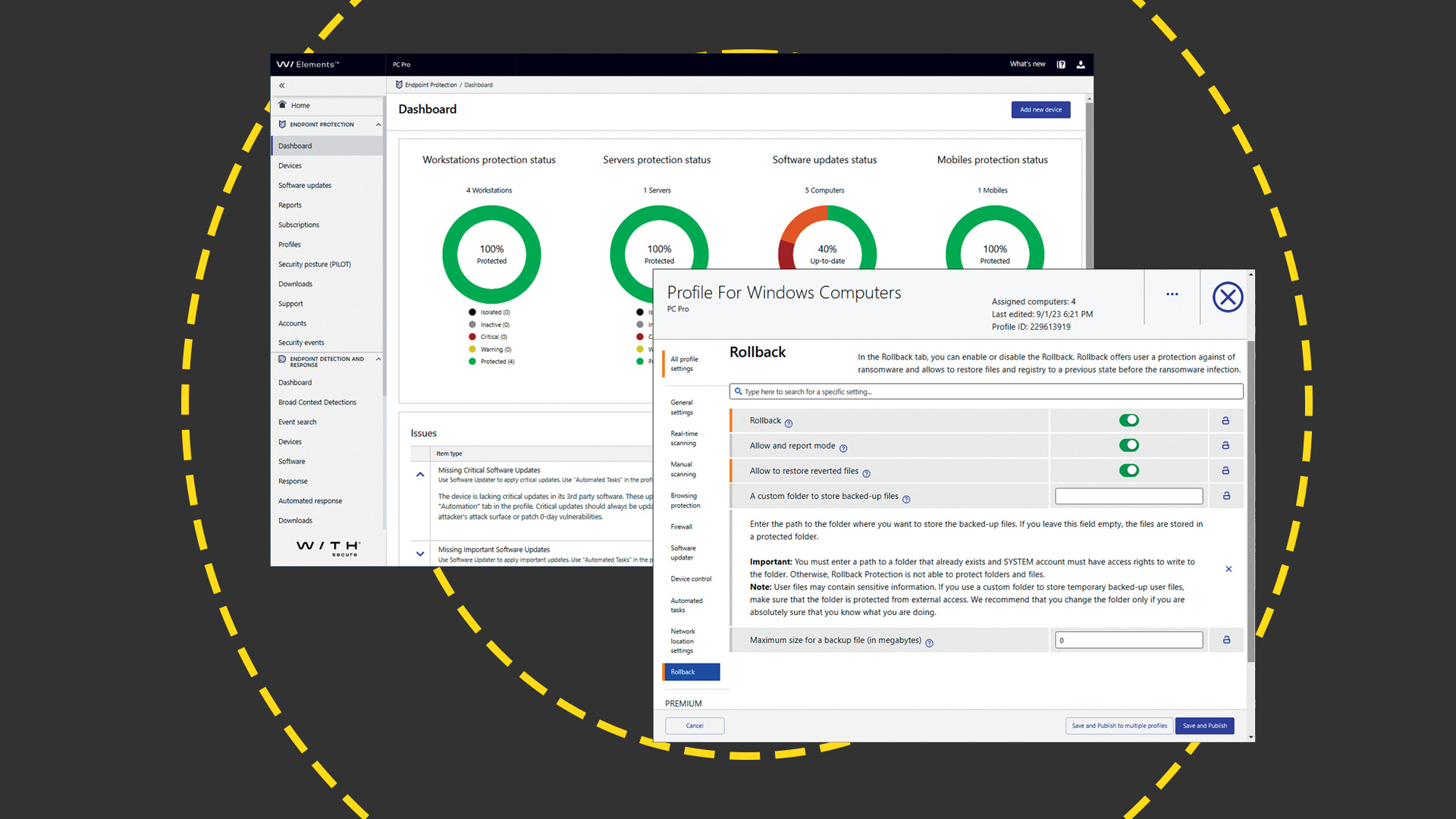Keep yourself protected with our list of the best security suites
With more malware lurking in the shadows than ever before, it’s critical that you keep yourself safe


Sign up today and you will receive a free copy of our Future Focus 2025 report - the leading guidance on AI, cybersecurity and other IT challenges as per 700+ senior executives
You are now subscribed
Your newsletter sign-up was successful
Symantec keeps on tinkering with the name of its flagship security suite: last year it was Norton Security, but now it’s been rebranded as Norton 360. The water is further muddied by the fact that it’s offered in Standard, Deluxe and Premium editions, which cover one, three (or five) and ten devices. The feature sets are the same, though, except that the single-device licence doesn’t include the parental control module – which is fair enough, as kids will presumably be using a separate device anyway.
Uniquely, Norton includes a cloud backup module. You’ll need to be selective about what you back up, as the Standard and Deluxe licences come with a fairly tight 10GB and 25GB of storage (50GB if you buy the five-device version), while the Premium licence gives you just 75GB shared between your ten devices. Still, assuming you already have a first-line backup regime in place, Norton adds a helpful extra level of off-site protection for your personal files.
Norton also distinguishes itself by including a full VPN with unlimited access to 31 servers worldwide – a far cry from the cut-down services offered by its rivals. Don’t get too excited: we found the VPN wasn’t able to unblock Netflix US, and our browsing speeds were slashed from 108Mbits/sec to just 39Mbits/sec even when using a UK-based server. However, for the occasional bit of privacy protection, it’s a definite plus point for Norton, especially when you compare the price of a dedicated VPN.
It’s good to see that the bundled parental controls aren’t hobbled, either. The Deluxe and Premium packages include full category-based website blocking, time limits and activity monitoring for Windows devices, plus location tracking for Android and iOS devices.
Beyond these big features, there’s not a lot more to the suite. At first glance, the interface looks like it’s full of tools and functions, but this is partly down to a muddled design that duplicates features across the “My Norton” and “Device Security” windows. Click around and the only other significant components you’ll find are the SafeCam feature – which lets you grant or deny webcam access to specific applications – and Norton’s free Safe Search and password manager extensions for Chrome and Edge. There’s no ransomware-specific protection, though the backup service could save your bacon if you get hit.

The final core security component isn’t shown in the main interface, but is buried in the Settings menu. This is Norton’s firewall, which lets you configure application and protocol-specific rules, and set policies for dealing with subjective cases such as “uncommon protocols” and “low-risk applications”. It seems a bit odd that Symantec doesn’t make more of this feature, but that perhaps reflects the reality that only the most meddlesome of advanced users will want to adjust the default settings.
A couple of system tools fill out the feature list: the disk defragmenter and file clean-up tools replicate functions that are built into Windows, but the Startup Manager gives a useful insight into whether individual startup items on your PC are commonplace among Norton users or suspiciously rare.
Sign up today and you will receive a free copy of our Future Focus 2025 report - the leading guidance on AI, cybersecurity and other IT challenges as per 700+ senior executives
Norton 360 can also boast of one achievement that only one rival can match: a 100% protection rating from both AV-Comparatives and AV-Test. Trend Micro managed the same, but blotted its copybook with 20 false positives, while Norton only fell for a more forgivable seven.
The user experience is better than you’d expect, too. The performance figures suggest that Norton has a significant impact on system responsiveness, but AV-Test noted that the slowdown was most obvious while installing new apps, while AV-Comparatives found that Norton primarily affected launch speed when apps were run for the first time. Those aren’t things you’ll be doing all that often, and when it comes to opening and using your everyday applications, Norton had a much lesser effect.
The last thing to talk about is the price. Officially, Norton 360 Deluxe costs £80 per year, but the Symantec website almost always seems to be a sale on – right now it’s reduced to £30, and if you shop around you’ll find the full five-device product online for just £20. As usual, look out for automatic renewals: make sure you cancel before your initial 12-month licence expires, or you’ll be billed the full RRP for your next year’s subscription.
With its built-in backup and VPN services, Norton stands out from the crowd, and even if those features aren’t high on your priority list, the suite’s low price and protection rating make it worth considering.
Darien began his IT career in the 1990s as a systems engineer, later becoming an IT project manager. His formative experiences included upgrading a major multinational from token-ring networking to Ethernet, and migrating a travelling sales force from Windows 3.1 to Windows 95.
He subsequently spent some years acting as a one-man IT department for a small publishing company, before moving into journalism himself. He is now a regular contributor to IT Pro, specialising in networking and security, and serves as associate editor of PC Pro magazine with particular responsibility for business reviews and features.
You can email Darien at darien@pcpro.co.uk, or follow him on Twitter at @dariengs.
-
 Anthropic promises ‘Opus-level’ reasoning with new Claude Sonnet 4.6 model
Anthropic promises ‘Opus-level’ reasoning with new Claude Sonnet 4.6 modelNews The latest addition to the Claude family is explicitly intended to power AI agents, with pricing and capabilities designed to attract enterprise attention
-
 Researchers call on password managers to beef up defenses
Researchers call on password managers to beef up defensesNews Analysts at ETH Zurich called for cryptographic standard improvements after a host of password managers were found lacking
-
 Blackpoint Cyber and NinjaOne partner to bolster MSP cybersecurity
Blackpoint Cyber and NinjaOne partner to bolster MSP cybersecurityNews The collaboration combines Blackpoint Cyber’s MDR expertise with NinjaOne’s automated endpoint management platform
-
 Millions of Dell laptops are are at risk thanks to a Broadcom chip vulnerability – and more than 100 device models are impacted
Millions of Dell laptops are are at risk thanks to a Broadcom chip vulnerability – and more than 100 device models are impactedNews Widely used in high-security environments, the PCs are vulnerable to attacks allowing the theft of sensitive data
-
 ‘A huge national security risk’: Thousands of government laptops, tablets, and phones are missing and nowhere to be found
‘A huge national security risk’: Thousands of government laptops, tablets, and phones are missing and nowhere to be foundNews A freedom of information disclosure shows more than 2,000 government-issued phones, tablets, and laptops have been lost or stolen, prompting huge cybersecurity concerns.
-
 Busting nine myths about file-based threats
Busting nine myths about file-based threatsWhitepaper Distinguish the difference between fact and fiction when it comes to preventing file-based threats
-
 The Total Economic Impact™ of the Intel vPro® Platform as an endpoint standard
The Total Economic Impact™ of the Intel vPro® Platform as an endpoint standardWhitepaper Cost savings and business benefits enabled by the Intel vPro® Platform as an endpotnt standard
-
 The Total Economic Impact™ of IBM Security MaaS360 with Watson
The Total Economic Impact™ of IBM Security MaaS360 with WatsonWhitepaper Cost savings and business benefits enabled by MaaS360
-
 WithSecure Elements EPP and EDR review: Endpoint protection on a plate
WithSecure Elements EPP and EDR review: Endpoint protection on a plateReviews An affordable cloud-managed solution with smart automated remediation services
-
 KuppingerCole leadership compass report - Unified endpoint management (UEM) 2023
KuppingerCole leadership compass report - Unified endpoint management (UEM) 2023Whitepaper Get an updated overview of vendors and their product offerings in the UEM market.
